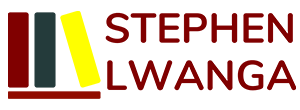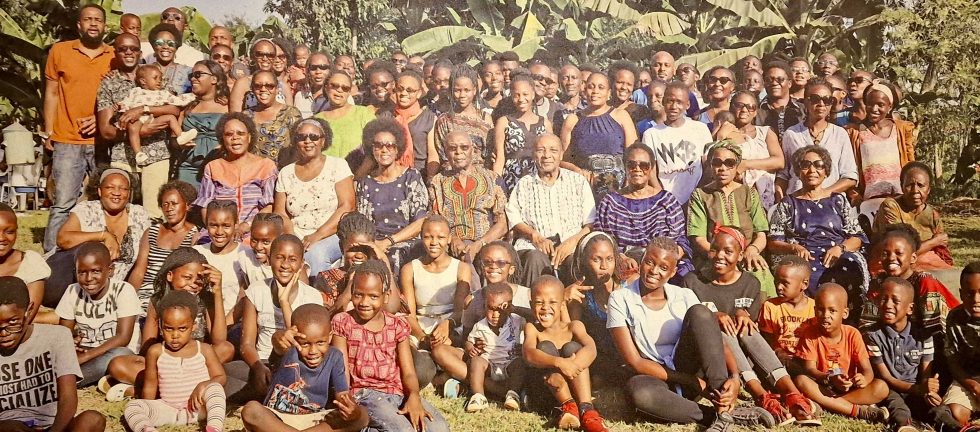Welcome to the Fork in the Road Blog: Reflections on Life, musings based on my perception of life, spanning decades of active life. This episode – Family – muses over people who are socially close with mutual loyalty while they may or may not have blood relationship.
A very narrow definition of a family is a group of one or more parents and their children either living together or interacting as a unit. This is not the definition I am using. I am referring to Family, not a family, as consisting of people beyond same parents or even beyond blood relationships. I am taking family to refer to people who are socially close with mutual loyalty. Social closeness includes blood relationship and what is normally referred to as distant relations. I am defining Family not only by biology, or marriage, or even habitation but including the people you love and can rely on. Friends are part of the Family I am referring to. I am using my cultural definition of Family not the European definition.
The Baganda do not discriminate people from Family membership if one is ready to be counted as one of it. Total foreigners are readily adopted into a family. Blood relations can be quite distant without knowing it. The beauty of our blood relationships is that we do not have categorizations of 1st, 2nd, 3rd, etc. cousins. We have brothers and sisters with subtle differentiation depending on whether they are paternal or maternal. We also refer to elders as father, or aunt on the paternal side and mother, uncle on the maternal side or grandfather and grandmother. Therefore, for example, one’s father’s brother and male cousins are all referred to as fathers. Father’s sisters and female cousins are referred to as aunties (ssenga). All one’s mother’s sisters and female cousins are referred to as mothers. Mother’s brothers and their male cousins are uncles (kojja). The glue that binds a family together is not blood thickness but relationships. Total foreigners can become Family members depending on not so much how they are treated, but more how they present themselves to the new Family and their social behaviour. I feel so enriched by my cultural Family setup.
My attitudes to, and for women are informed by the women I grew amongst, in the narrow definition of Family. Apart from my mother, I was sandwiched among sisters who, in countless ways pampered me. I grew up believing that women can be relied on more than men. That they were more dependable. That they can be more demonstratively loving. Women, certainly, can be relied upon more than men, to do what they are expected to do.
Family size is not a factor when Family refers to people who are socially close with mutual loyalty. If, however, a decision must be made on the number of children to have, within the narrow definition of family, family size can then become an objective. The size can range from zero, no children, to as many as possible. That would be the goal of the couple planning for their future family. They must think of the welfare of their children in relation to their ability to provide them with the best life. There are studies and reports about the impact of number of children in a family and their development. For example, it has been asserted that there is substantial documentation indicating that children from small families have a better developmental prognosis than children with many siblings. As a statistician I can only point out that there are exceptions. I was the 7th child and I have much younger sisters who are international leaders and engineers etc. There is more a Family can
provide a child for its optimal development than numbers of siblings. I am not a sociologist so I will leave this point without any further elaboration least I am accused of being an old-age buffoon.
The type of Family I am musing over includes people beyond same parents or even beyond blood relationships. I am taking Family to refer to people who are socially close with mutual loyalty. Sometimes people in the same profession are referred to as a family. For example, the Family of bankers, or the Family of accountants or the Family of beekeepers, etc. In other words, people with a common goal defined by their profession.
A special such Family is the global network of more than 1.4 million people, from all walks of life, united to take actions that create lasting change in communities and in individuals. They are called Rotarians.
Rotarians offer themselves to service beyond self as volunteers and stay committed to their goal. For nearly 120 years, Rotarians have used their resources, passion, and energy, to design and implement projects covering areas such as promoting peace, fighting disease, providing clean water, improving sanitation and hygiene, saving mothers and children, supporting education, and growing local economies. The goal in all these areas being to make our world better. The Object of Rotary is to encourage and foster the ideal of service as a basis of worthy enterprise. Rotarians’ personal and professional relationships are guided by a commitment to telling the truth, fairness to all, building goodwill and better friendship and ensure that whatever they do is beneficial.
We are not always able to control the circumstances governing our expectations. This is more so in connection with family life. While we live in more than one family lives, one or more Families could be dominant. For example, one could be cocooned into the nuclear family without any other familial interactions or taken up by the Family of one’s professionals at the near complete exclusion of the blood relatives etc. The ability to accept the circumstances and make the best of them, is important for peaceful Family life. What is your Family?
Think about it.
Thank you for being part of the Fork in the Road Blogs: Reflections on Life. Be sure to look out for the next episode when I will be writing about Retirement. And if you gathered something useful, please feel free to share the blog. My books, Fork in the Road: Creating a future of value starting from where you are and A view round the bend. Setting goals for your life’s journey are available for purchase at Aristoc bookshops in Kampala, Uganda and online at Amazon.


Comments (2)
Flavia
I have a family that is identified by several aspects of my life. I identify as a Catholic and a member of Christ the King Church, Kampala is one family and as a Rotarian (have been part of this family since my undergraduate days) this is another family that has been so close in moments of real need, joys, and celebrations. When I walk down memory lane, my happiest moments have been in service
Rtn Stephen
Rtn Flavia, you are enriched by your family identities.